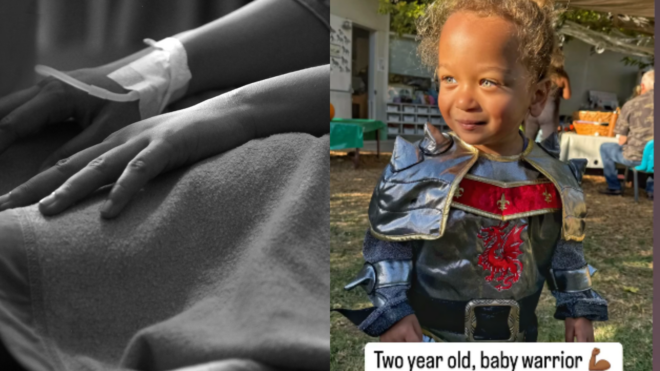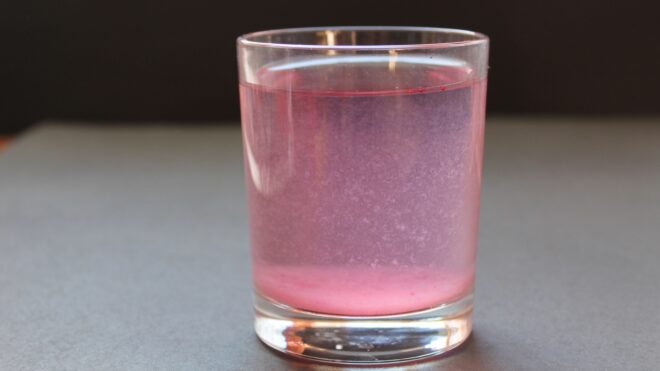
Last month, we heard the news that three-time Olympic medalist Tori Bowie had died. The former 100-meter world champion was just 32 years old. Orange County Sheriff’s Department deputies found her body in her home after someone called for a “well-being check for a woman in her 30s who had not been seen or heard from in several days.”
The news was so shocking it was deemed a mystery. Bowie, who was eight months pregnant at the time of her death, was not only a young woman but an Olympic athlete in presumed peak physical health. But recently, the Orange County Medical Examiner’s Office revealed the devastating cause of Bowie’s untimely death.
More from CafeMom: ‘Perfectly Healthy’ 25-Year-Old Black Mom From Detroit Dies Days After Giving Birth
Before the autopsy results were released, many incorrectly speculated about Bowie's cause of death.
Bowie had a “well developed fetus” and was “undergoing labor at the time of her death,” People reported. Bowie’s agent confirmed the news after many began to suspect that Bowie had intentionally harmed herself.
“Unfortunately, so many people, including the media, are making speculations that she did something to herself, which is very hurtful,” Kimberly Holland explained in a statement to CBS News.
Some even suggested that Bowie’s death was a result of receiving the COVID-19 vaccine. “So hopefully, now knowing the truth, there will be many apologies,” Holland continued.
Bowie’s death was ruled natural.
Medical examiners estimate that Bowie was eight months pregnant and in active labor at the time of her death, ESPN reported. Officials said possible complications included respiratory distress and eclampsia, a condition when a person seizes after a sudden spike in high blood pressure.
“Eclampsia typically occurs after the 20th week of pregnancy,” according to the Cleveland Clinic. “It’s rare, affecting less than 3% of people with preeclampsia. Eclampsia can cause complications during pregnancy and requires emergency medical care.”
Allyson Felix, one of Bowie’s Olympic teammates, actually underwent an emergency C-section as a result of severe preeclampsia. The manner of Bowie’s death was ruled as being from natural causes.
People also turned their attention to America's health care system and its treatment of Black mothers.
Although the cause of Bowie’s death may have been deemed natural, some people can’t help but wonder if the US health care system is to blame. Black women are three times more likely to die during pregnancy or the postpartum period than their white counterparts, creating what some have deemed a Black maternal health crisis.
Two-thirds of these deaths are considered preventable, the American Journal of Managed Care claims. Instead, these deaths are attributed to racist beliefs about Black women’s tolerance for pain and even whether physicians will believe Black women when they report potential complications.
These statistics are well-known at this point. And the conversation around Bowie’s death has turned to one about structural racism.
“Tori Bowie, olympic gold-medalist and former World’s Fastest Woman. If personal fitness and status are not protective factors against maternal mortality, then there’s a lot more to be understood about the complexity of Black maternal mortality. So incredibly tragic,” one Twitter user wrote.
Some people even suggested Bowie's skin color could have been a factor in her lack of care.
“She died from eclampsia. Why wasn’t she being monitored?” another person tweeted. “Also, it seems like she didn’t have a close knit circle of loved ones because she wasn’t found until DAYS later. Community and quality health care is so important. Rest in Power, Tori Bowie.”
There were others who dug deeper into the conversation, suggesting that Bowie’s darker complexion could have been a catalyst for the lack of care she received.
“Tori Bowie’s death was preventable. If she lived in Netherlands, Australia, or Japan, she most likely would have received very different maternal healthcare. If her skin color was lighter, she most likely would’ve received very different maternal healthcare in the US,” someone tweeted.
Although skin complexion and the type of medical care one receives may seem unrelated, there is a correlation. A study published in the American Journal of Preventative Medicine found that the relationship between microaggressions and delayed prenatal varied by skin tone.
“Light and dark brown women reported experiencing the most microaggression and were the two groups most likely to delay prenatal care,” the journal reported. Assistant professor Jamie Slaughter-Acey, who led the study, concluded, “Racism and colorism are interlocking systems of oppression. Policymakers and practitioners should be aware of how they influence the quality of health care women of color receive and its potential outcomes, and take steps to prevent their harm.”
Bowie's former agent said the track star was excited about the baby.
A program from Bowie’s May 13 funeral, held near her hometown of Sandhill, Mississippi, noted that Bowie was preceded in death by a daughter, Ariana Bowie. Medical examiners confirmed a “baby Bowie” but declined to provide further information, the New York Times reported.
Holland, who spoke at Bowie’s funeral, said the track star had been excited about the pregnancy. Bowie had agreed to move to Atlanta so Holland could help her raise the child. “It was one of the best conversations we’ve had in a long time,” Holland told the Times. “We just giggled like schoolgirls. We laughed so hard my stomach was hurting.”







